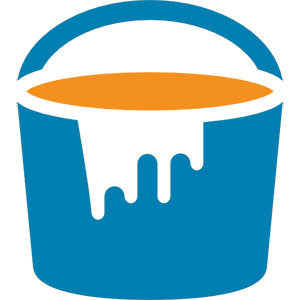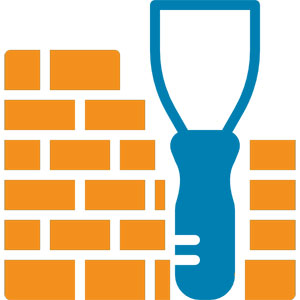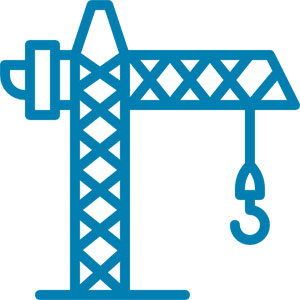A Project of Limmud North America powered by the Rockland Board of Rabbis and Jewish Federation and Foundation of Rockland County
Global Day of Jewish Learning

Many thanks to all who attended and presented at our 2022 Global Day of Jewish Learning!

Session I
Picking Up, Dusting Off, and Bouncing Back
With Rabbi Dan Pernick,
Beth Am Temple
The Jewish people have dealt with many blows throughout history: from slavery in Egypt, to the loss of the Northern Kingdom, to the destruction of both Temples in Jerusalem, to the Crusades, to the several expulsions from European countries, the Inquisition, the Holocaust. This seems to have taught us how to bounce back over and again, as we saw a couple of decades ago with the destruction of the New Orleans Jewish community during hurricane Katrina.
We rebuild our lives and our communities after each and every tragedy. The lessons learned have helped us rebuild after shootings in our synagogues or schools such as Stoneman Douglas (where a third of the students were Jewish) and more recently after the COVID pandemic.
Is there something unique about the Jewish people that has led them to this resilience and dedication to rebuilding over and over again? This lesson examines different rebuilding events throughout the centuries to see if there is a common element to all.

Session II
Rebuilding After the Loss of a Loved One
With Rabbi Jill Hackell,
West Clarkstown Jewish Center
While loss is a part of life, it can feel so overwhelming, and the pain can be so great, that the thought of rebuilding can feel daunting or even impossible. This can apply to all types of losses, for example, the loss of a loved one, the loss of one’s health, the loss of one’s home or home country, even the loss of a job. While it is true that life can never be exactly the same as it was before, the experience of a loss can have a transformative power, providing an opportunity to rebuild a "new" life that is informed by one’s life before the loss, as well as by the loss itself.

Session III
Creativity as a Vehicle for Personal Growth, Transformation, and Rebuilding
With Rabbi Paul Kurland,
Congregation Shir Shalom
“There is nothing as whole as a broken heart.” The Kotzker rebbe, Rabbi Menachem Mendel of Kotzk, is said to have coined this beautiful phrase. Brokenness, conflict, disappointment, and loss are inevitable in life, and often our instinct is to run from these painful emotions. The Kotzker rebbe, in naming the wholeness that brokenness contains, offers us another model. In this framing, it is only by engaging directly with difficult emotions that we can rebuild; only in holding our own brokenness and that of others with compassion and courage, can we find a deeper level of wholeness.
In this unit, we will consider how art, music, storytelling, craft, design, and other forms of creativity help us rebuild the broken places inside us. Jewish texts and traditions will be our guide as we explore this approach to personal rebuilding through creativity - not focused on skill or “ mastery,” but rather as a sacred practice, using the power of creative practice to work with our own brokenness and, through creative rebuilding, to find wholeness, resilience, and joy.
Dr. Rabbi Jill Hackell
Dr. Rabbi Jill Hackell received her M.D. degree from Johns Hopkins School of Medicine and practiced pediatrics for several years. She worked for over 20 years in the pharmaceutical industry, where she did clinical research on new vaccines for children. She was ordained at the Academy for Jewish Religion, a pluralistic rabbinical school. Rabbi Hackell is the rabbi at the West Clarkstown Jewish Center. She also teaches Jewish Bioethics at AJR, secular Bioethics at Dominican University in the Graduate Nursing program, and has taught a wide range of subjects at the Federation Midreshet since 2012.
Rabbi Daniel Pernick
Rabbi Daniel Pernick was ordained at the Cincinnati campus of Hebrew Union College – Jewish Institute of Religion in 1982. He has served as Rabbi of Beth Am Temple in Pearl River since 1985. Rabbi Pernick has made adult education and community outreach central features of his rabbinate. A past president of the Rockland Board of Rabbis and a two-time past president of the Pearl River Interfaith Council, Rabbi Pernick served as a campus minister and an adjunct faculty member at St. Thomas Aquinas College in Sparkill from 2002-2021.
Rabbi Paul Kurland
Rabbi Paul Kurland has always been deeply committed to Jewish education. He received his Masters degree in Jewish Education from the Jewish Theological Seminary and served as Educational Director in congregations in Pennsylvania and New York with distinction. He is also well known for his active involvement in Camp Ramah in the Bershires for decades.
Rabbi Kurland received his ordination from the Jewish Theological Seminary in 1989 and has been a Rockland pulpit rabbi since 1997, now proudly serving at Congregation Shir Shalom. He and his wife Gerri have 4 sons, Yoni, Noam, Eytan and Ami and a grandson, Shel.
Global Day of Learning is brought to you by Limmud North America, the Rockland Board of Rabbis and Jewish Federation & Foundation of Rockland County.
